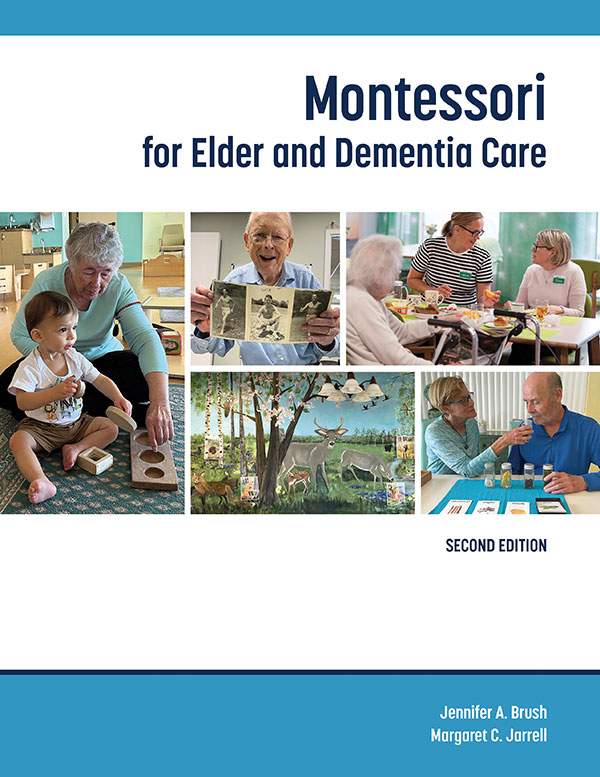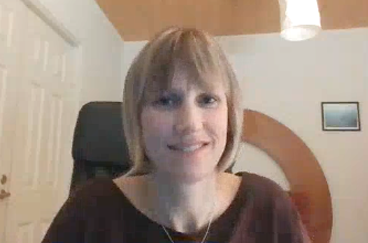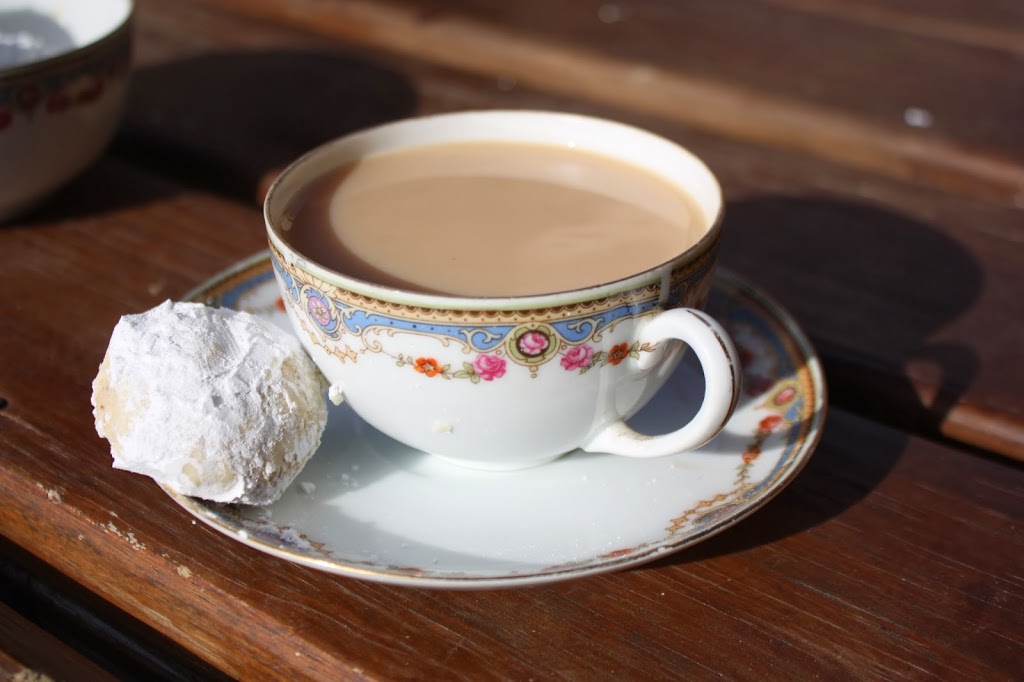Now Available! Montessori for Elder and Dementia Care (Second Edition)
by Jennifer Brush & Margaret Jarrell
We are proud to announce the publication of the second edition of our book, Montessori for Elder and Dementia Care through Health Professions Press!

The first edition focused on clearly explaining the concepts behind this highly person-centered approach, how to create a prepared environment, and how to increase levels of engagement for older adults. The second addition has all this, PLUS a full action plan template with step-by-step checklist for adopting Montessori methods in elder care settings, job descriptions and sample policies for Montessori implementation, advice on planning and running an intergenerational program, advice on planning and running a Memory Book workshop, and 30 ready-to-use activities. Each activity is illustrated with photos and includes the purpose of the activity, followed by specific instructions, strategies for controlling errors (to encourage success), and modifications for people of different abilities.
The new edition of our book includes a new section on Intergenerational Programming. We discuss the benefits of intergenerational programs, logistical considerations, preparing the physical environment, activity suggestions, a suggested format for the sessions, and how to prepare both children and elders before the program begins.
Here is an excerpt with recommendations for preparing children for an intergenerational experience:
Intergenerational experiences are a great opportunity to destigmatize aging and educate children about the abilities of older adults.
If the children are visiting the care community or senior center, take time to talk to the children several times before they visit about what they may experience while they are there. Frame this discussion in a positive light, explaining how elders are receiving the assistance they need. Discuss (and show pictures) of some of the types of assistive devices that elders may use (canes, hearing aids, walkers, wheelchairs) and explain how these devices facilitate independence. Explain that people who have physical or cognitive impairments are still very capable of doing many things.
Consider reading books to the children such as My Book About Brains, Change and Dementia by Lynda Moore and George Haddon; Granny Can’t Remember Me by Susan McCormick and Timur Deberdeev; The Day Grandpa Bunny Forgot Ben’s Name by Isla Wynter; and Weeds in Nana’s Garden by Kathryn Harrison.
Offer activities based on the specific interests of the children and elders so that each may have an opportunity to serve as an “expert.” For example, a child may be very enthusiastic about how to show an elder how to make Harry Potter origami. Or an elder may enjoy sharing a state quarters collection. Provide both child-size and adult-size tools to children and elders so they have what they need to work comfortably and have FUN together!
Montessori for Elder and Dementia Care (Second Edition) is available from Health Professions Press in print or as an ebook. We hope you find this to be a valuable resource as you embark upon your Montessori journey!




